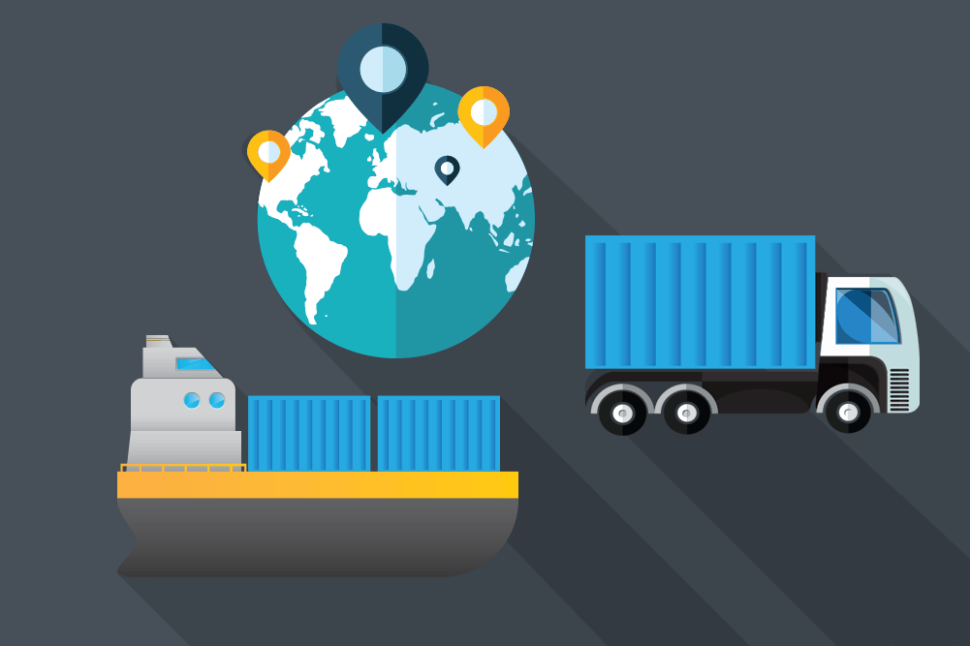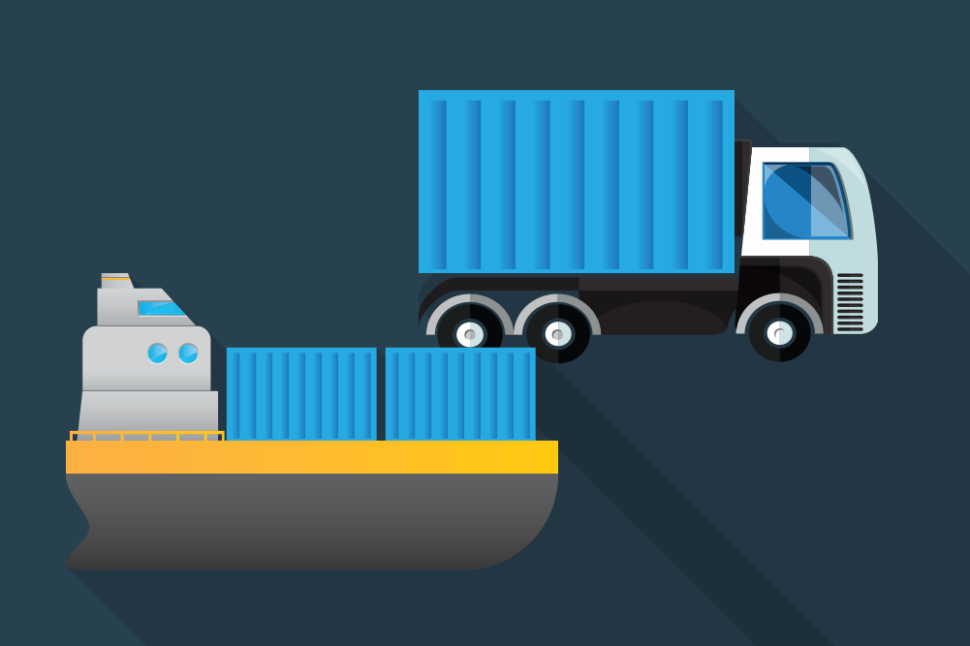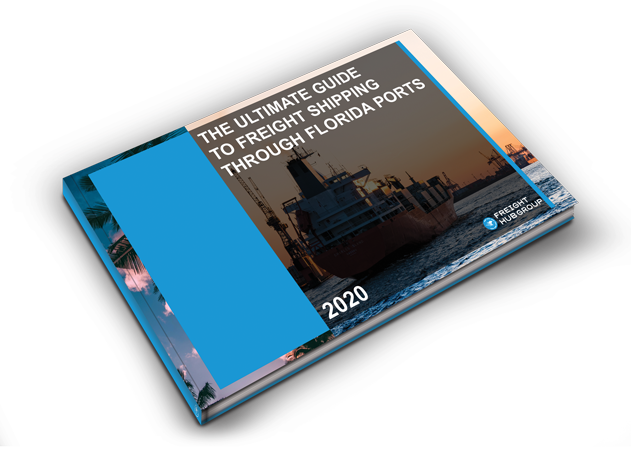Intermodal Logistics: The Future of Transportation

Imagine a world where you could order anything you wanted online and have it show up at your doorstep the next day. That’s the world of intermodal logistics, and it’s changing the way businesses operate.
Intermodal logistics is a process that uses more than one transportation mode to move cargo from its origin to its destination. The use of multiple modes allows for greater efficiency and cost savings when compared to traditional methods of transportation like trucking or rail. It also helps reduce environmental impact by using less fuel overall.
But what does this mean for business? And more importantly, what does it mean for you? In this blog post, we’ll explore the benefits of intermodal reverse logistics companies and how they canhelp your business grow in 2022 and beyond.

What is intermodal logistics?
Intermodal logistics is the process of moving goods between different modes of transportation, such as air, sea, and land. The goal of Intermodal transportation system is to move products from their point of origin to their final destination in the most efficient way possible.
There are several factors that go into making an intermodal shipment successful: accurate forecasting, careful planning and coordination, reliable supply chain, and effective distribution.By understanding these factors, you can optimize your own logistical operations for increased efficiency and profitability.
In today’s economy, companies must be able to quickly respond to changing market conditions by shipping whatever product or commodity they need where it needs to go. This requires a complex network of suppliers and distributors across multiple modes of transportation. To stay ahead of the competition, you need to understand how event streaming can help you streamline your processes and improve your overall performance
Benefits of Intermodal Logistics:
Intermodal logistics is the transportation systems of goods between different modes of transport, such as air, sea, and land. It’s a complex process that requires coordination among multiple stakeholders to ensure efficient and timely delivery.
The benefits of intermodal logistics are manifold:
• Intermodal transportation can reduce the time it takes to get products to market by reducing the amount of time spent in transit. This is especially important for high-value items that need to reach consumers quickly or perish in storage.
• By transporting goods across different modes of transport, you can minimize environmental impact . Shipping containers that travel by air emit less CO2 than those that travel by ship or truck; moreover, ocean freight uses up far less energy than overland shipments because maritime traffic moves at slower speeds and doesn’t require as much braking or turning power on long journeys.
• The use of multiple carriers allows for more flexible routing , which leads to increased efficiency and reduced costs
• Intermodal logistics offers an integrated platform for managing all aspects of supply chain management (SCM) operations – from procurement through distribution – making it easier for businesses to track their inventory

Intermodal transportation system:
Intermodal transportation system is also known as multimodal. It combines different modes of transportation, such as:
• The train and the bus.
• The ship and the plane.
• The truck and the car.
This system usually refers to the delivery of goods from one place to another using multiple modes of transport at once.
It can be seen as a combination of the shipping, road and rail industries, which makes it one of the most efficient systems in terms of cost-efficiency and environmental impact.
Intermodal transport allows for quick and efficient delivery of goods, while also improving their quality. It is also much more environmentally friendly than shipping via ship alone; this is because the shipping industry emits large amounts of greenhouse gases into the atmosphere, which contribute to climate change.
How does this work in practice?
Intermodal transportation is the process of moving goods between different modes of transport, such as sea, air, and land. It is a critical part of global trade and has been for centuries.
The benefits of intermodal transportation are manifold: it reduces environmental impact by reducing the number of truck trips; it increases efficiency by allowing cargo to be moved where it is most needed; and it is cost effective by minimizing the amount of time spent in transit.
However, how does intermodal transportation work in practice? The three main types of intermodal transport are ocean shipping, rail freight, and container shipping. Each type has its own advantages and disadvantages: ocean shipping is slow but efficient; rail freight is fast but expensive; container shipping is cheap but less efficient than other forms.
Why are intermodal logistics so important?
Intermodal transportation is the process of moving goods between different modes of transport, such as air, sea, and land. It’s a critical part of global trade because it allows businesses to reach new markets quickly and efficiently.
There are several reasons why intermodal logistics are so important:
• Intermodal transportation helps reduce environmental impact. By transporting goods using multiple modes of transport, you can reduce the amount of pollution that is released into the environment. This is especially important when it comes to shipping items that contain hazardous materials or products that require special handling.
• Intermodal transportation reduces costs. When you ship goods using multiple methods, you can minimize your overall expenses by taking advantage of economies of scale and network effects (the more people involved in an industry, the lower the cost per unit).
• Intermodal transportation enables faster delivery times. When your product arrives at its destination sooner rather than later – whether that’s in time for your customers’ next business meeting or just before their holiday deadline – everyone wins!
• The cost for shipping a container is much lower than for any other mode of transport.
• The speed of delivery is higher because it allows you to send several containers at once as opposed to sending each container individually by ship or train.
• There are no customs delays or additional costs when importing through intermodal means that your goods arrive sooner and cheaper than if they were shipped separately by truck or train.
3PL Companies for Intermodal Logistics
3PL companies are in the business of helping other companies manage their logistics needs. Most of these companies are in united states. But the best 3PL companies for logistics are those that offer comprehensive coverage and services, including warehousing, distribution, and trucking rail. These companies specialize in providing solutions for transportation problems. They can also help with ton of freight forwarding and customs brokerage.
Recent Posts
Watch our Podcast

THE ULTIMATE GUIDE TO FREIGHT SHIPPING THROUGH FLORIDA PORTS
When it comes to ocean freight shipping in Florida, there is a lot to know to ensure you follow the appropriate steps when shipping into and out of Florida Ports.
Just enter in your email address and receive your FREE E-Book in minutes!